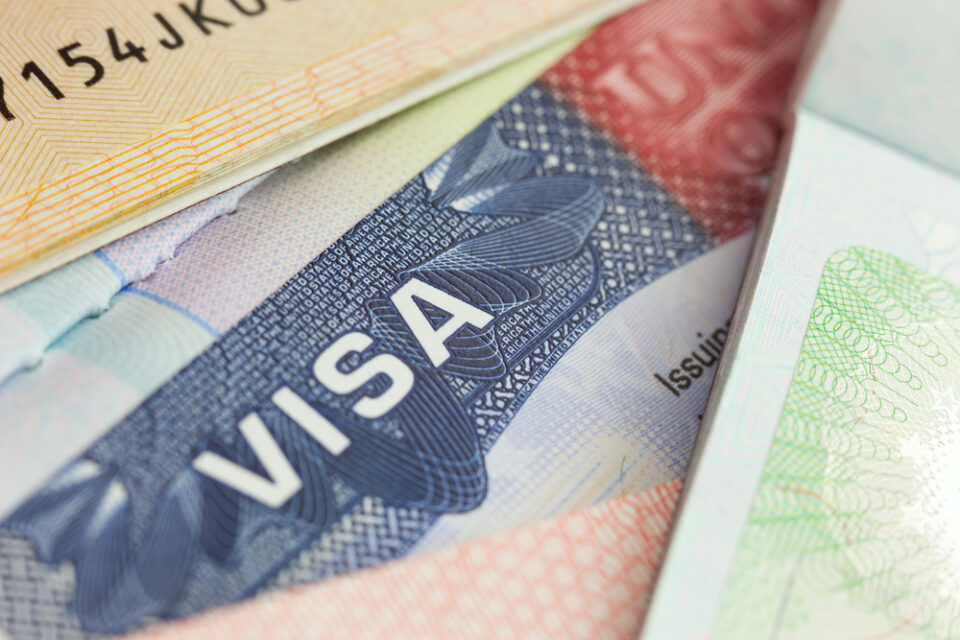A steep drop in F-1 visas issued to Korean nationals has sparked concern about the broader impact on U.S. colleges and communities, as international student enrollment faces mounting pressure from recent federal policy changes.
According to monthly statistics from the U.S. Department of State, 2,017 F-1 visas were issued to Korean nationals in May 2025, down 23% from 2,630 in May 2024. From January through May, the total stood at 3,853, a decrease of nearly 1,000 compared to the 4,839 issued during the same period last year.
Data compiled by the National Association of Foreign Student Advisers (NAFSA) shows a broader global trend. F-1 visa issuance dropped 12% year-over-year between January and April, and 22% in May alone. Although June figures are not yet finalized, NAFSA warns the decline could reach as high as 90%, citing severe delays in interview processing.
If the current trend holds, NAFSA projects that international student enrollment for the 2025–2026 academic year could fall to 1,008,000, a 15% decrease from the prior year. This would result in an estimated $7 billion in financial losses for U.S. universities and threaten over 60,000 jobs in local economies.
The economic fallout is expected to hit several states hard. California may lose over $1 billion, with New York close behind. Illinois, Texas, Florida, and Michigan are each projected to suffer losses exceeding $200 million, according to NAFSA’s estimates.
The sharp decline is largely attributed to recent federal changes to student visa procedures. From May 27 to June 18, the U.S. Department of State suspended all student visa interviews at embassies worldwide. When interviews resumed, applicants were subjected to stricter screenings, including a requirement to submit social media account information.
As a result, students in major sending countries—including South Korea, India, China, Japan, and Nigeria—have reported widespread delays or inability to secure interview appointments.
Owen Kang (28), a Korean student at UC Berkeley, noted a significant decline in his school’s Korean student population. “Our Korean student club has gone from 100 members to about 40,” he said. “In our group chat, people are constantly complaining about delays or getting the ‘green letter.’”
Educators warn that declining international enrollment poses risks beyond tuition loss. International students are a major source of revenue, especially for private universities, where they pay full tuition, and public universities, where they pay out-of-state rates. That income often subsidizes tuition discounts for domestic students and supports research funding.
After rebounding from the pandemic, international student numbers reached an all-time high of 1.12 million in the 2023–2024 academic year. But experts fear that progress could be reversed if immigration restrictions tighten again.
Esther Brimmer, CEO of NAFSA, issued a warning: “International students are critical to America’s innovation and global competitiveness,” she said. “What we’re seeing now is just the beginning. The government must act quickly to ensure students and researchers can arrive on campus without unnecessary barriers.”
BY HANKIL KANG [kang.hankil@koreadaily.com]

![Troublesome delivery robots damage gardens, snarl streets Delivery robots in urban areas including LA Koreatown and Hollywood have been involved in a string of incidents, blocking fire engine responses, crossing police lines at active scenes, and colliding with homes and motorcycles. [KTLA • Reddit capture]](https://www.koreadailyus.com/wp-content/uploads/2026/02/0226-delivery-robot-compile-100x70.jpg)
![Nonprofit leaders accused of diverting millions meant for the vulnerable Judy Baca, who faces allegations of embezzling $5 million, participates in work on “The Great Wall of Los Angeles” mural in 2023. [Sangjin Kim, The Korea Daily]](https://www.koreadailyus.com/wp-content/uploads/2026/02/0226-nonprofit-1-100x70.jpg)
![Family of army veteran killed in San Antonio shooting launches fundraiser A screenshot of the GoFundMe fundraising page created for Kyung Chang Lee. Donations are being collected to support the family of Lee, who was killed in the San Antonio, Texas, shooting. [GoFundMe capture]](https://www.koreadailyus.com/wp-content/uploads/2026/02/0225-KyungChangLee-100x70.jpg)
![Cartel leader’s killing sparks unrest, prompts Koreans to reconsider Mexico trips Downtown Guadalajara in Mexico’s state of Jalisco, which resembled a war zone on February 22 amid arson and other violence by drug cartel members, appears quiet on February 24. The area, usually crowded with tourists and residents, saw a sharp decline in foot traffic and public transportation use. [Pablo Lemus Navarro/X account]](https://www.koreadailyus.com/wp-content/uploads/2026/02/0225-Mexico-100x70.jpg)